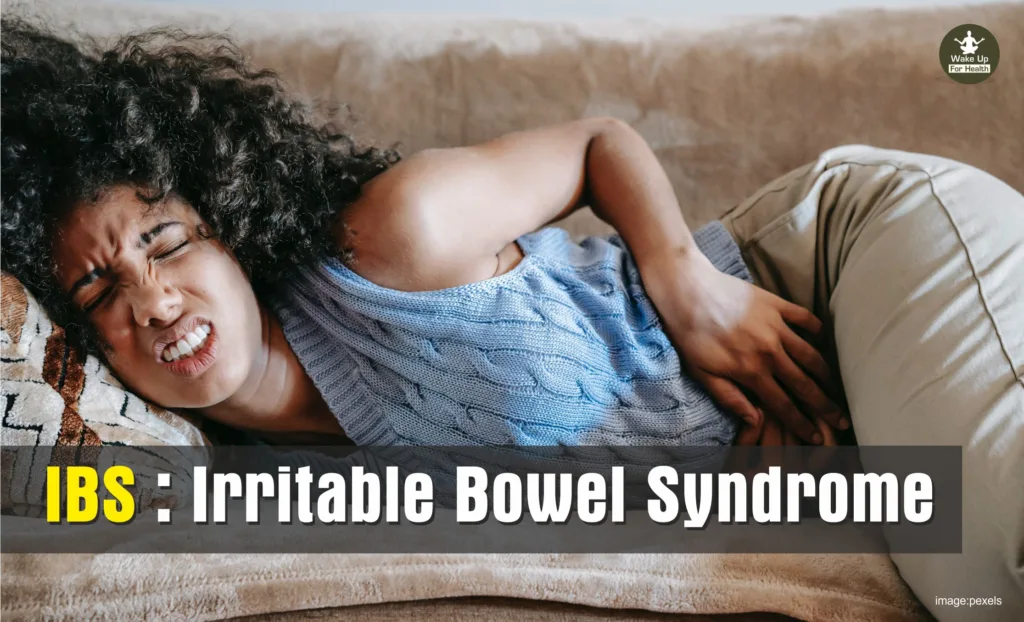I.B.S. i.e. Irritable Bowel Syndrome is a disorder in which the large intestine is affected. In this disease, there is no change in the texture of the patient’s intestine, so many times it is considered only as an illusion of the patient. But even after there is no change in the texture of the intestines, the patient has problems like constipation or Frequent Diarrhea, Abdominal Pain, Gas. Lets study about Irritable Bowel Syndrome (IBS), Gastrointestinal Symptoms, Triggers, Causes, Diet and Treatment.

What is IBS?, Anxiety and IBS, Gastrointestinal Symptoms, Dietary Management, Treatment Approaches
Irritable Bowel Syndrome (IBS) is a very common disorder that affects the colon. It causes constipation, diarrhea, gas, bloating, abdominal pain and cramps. Irritable bowel syndrome is usually long-term. Unlike other disorders such as Crohn’s disease and ulcerative colitis, irritable bowel syndrome does not result from colorectal cancer or changes in bowel tissue disorders.
Irritable bowel syndrome can be controlled by making changes to your diet and lifestyle. Some require counseling and medication as well.
What are the Symptoms of Irritable Bowel Syndrome?
o Constipation or Frequent Diarrhea – Many times one has to go for defecation even after eating something. Many patients have to go for defecation 7 or 8 times a day or even more often. Whereas many times constipation happens on its own.
o Abdominal pain or cramps.
o Excessive gas formation.
o Flatulence or bloating.
o Smooth phlegm like substance or goose coming with feces.
o Not being able to clear the stomach in one go, due to which the need to go to the toilet is felt again and again.
How much you know about : H. Pylori Bacterial Infection
What Does an IBS Attack Feel Like?

Common Symptoms in an IBS attack are:
• Pain or cramping in the abdominal area during bowel movements.
• Feeling constipated or a change in bowel movements. Sometimes they alternate and differ from person to person.
• Abdominal bloating or discomfort.
• Feeling that you haven’t pooped properly.
• Mucus in stool.
• Indigestion, gas and heartburn.
• In women, especially during their periods, these symptoms get worse.
What is the Treatment of Irritable Bowel Syndrome?
The treatment of irritable bowel syndrome depends on its symptoms, for which medicine is also given. If the patient has mental problems, then he is given medicines to reduce stress. In many people, this problem can be relieved by changing the diet. You can get rid of this problem by making several important changes in your diet:
Stool samples can be examined to check for infection. A blood test is done to check for anemia.
Example.
● Avoid caffeinated drinks like coffee, tea and soda
● Fiber rich things must be included in your food.
● Water should be kept drinking in maximum quantity throughout the day.
● Milk and other things should be consumed according to the time limit.
● One should not eat large quantity of food at once.
● Eating and drinking should be done at small intervals throughout the day.
Leave these foods and live healthy long life?
Can IBS Go Away on its own?
IBS can disturb your whole life cycle and give you trouble. But it does not majorly affect your health system or guts. Anyone can get rid of IBS by adopting some right measures. It may not go away on its own but yes, we can prevent it by following some useful tips.
• Increase your physical activity to reduce constipation.
• Consume probiotics.
• Take peppermint tea or supplements.
• Do yoga and meditation to avoid stress.
• Try acupuncture therapy.
• Take medicine if necessary (in chronic constipation).
• Follow IBS diet. Include foods that are low in fructose such as quinoa, bananas, grapes, cantaloupe, zucchini, etc.
What is the Cause of Irritable Bowel Syndrome?
The exact cause of irritable bowel syndrome is not yet known, but studies suggest that a number of factors play a major role. The walls of the intestines are lined with a layer of muscle that contracts and relaxes in a rhythm as it moves through your intestinal tract into your rectum.
If you get irritable bowel syndrome, contractions may be stronger and last longer than normal. This causes diarrhea, bloating and gas. In some cases, the opposite may also occur, it may be characterized by weak intestinal contractions, which slow down the passage of food resulting in dry and hard stools.
However, some factors that lead to irritable bowel syndrome include:
1. Foods: Many people have severe symptoms of irritable bowel syndrome when they consume certain things like alcohol, carbonated drinks, milk, broccoli, cauliflower, cabbage, beans, fruits, fats, spices and chocolate.
2. Stress: Most people who have irritable bowel syndrome find that their symptoms get worse and occur more frequently during periods of extreme stress. Although stress can aggravate these symptoms, it does not cause irritable bowel syndrome.
3. Hormones: Studies show that women are more likely to develop irritable bowel syndrome than men. Hormonal changes play a big role in triggering irritable bowel syndrome. Many women experience a worsening of IBS (irritable bowel syndrome) during menstruation.
4. Other Diseases: Other medical disorders such as bacterial overgrowth and gastroenteritis can also trigger irritable bowel syndrome (IBS).
Risk factors for Irritable Bowel Syndrome
• People under the age of 45 are more likely to develop irritable bowel syndrome (IBS).
• Studies show that people who have a parent or family member with irritable bowel syndrome are at a higher risk of developing it themselves.
• Personality disorders, depression, anxiety, history of sexual abuse and domestic violence are major risk factors for developing irritable bowel syndrome.
Are you a Good Parent? What your child says – Must Read.
Which Foods Trigger an IBS Attack?
There are certain foods that may contribute to triggering your IBS attack. You can avoid them by planning properly. It helps you to prevent problems like constipation, abdominal pain, Bloating and Diarrhoea. Many people do not know that IBS is different from person to person.
Keeping track of these triggers can help you prevent them in the long run. You can start by avoiding the following foods:
• Avoid eating bread and cereals made from refined grains.
• Decrease your high protein diet.
• Stay away from processed foods like chips and cookies.
• Reduce intake of coffee, alcohol and carbonated drinks.
• Stop consuming dairy products, especially cheese as it can trigger IBS attacks.
Is Yogurt Good for IBS?
Without any doubt, curd is a rich source of probiotics. It helps to a great extent in the treatment of IBS. Yogurt brings back the good bacteria in your intestinal tract. But at the same time, there are some cases in which curd reacts differently. Some people find curd ineffective in IBS attacks. So, there are mixed reactions on the efficacy of yogurt.
Which Fruits Help IBS?
While eliminating food from your diet that triggers an IBS attack, there are some fruits that you can include in your diet to get rid of IBS. These are:
• Blueberries
• Bananas
• Muskmelon
• Grapes
• Kiwi
• Oranges
• Strawberries
• Lemon
Can Drinking More Water Help IBS?
Drinking water helps with IBS because it settles your stomach and calms irritated nerves. But there are some drinks or beverages that have an adverse effect on your stomach.
These are:
• Carbonated Drinks
• Liquor
• Caffeine
• Tea

How Can I treat IBS Naturally?
There are many natural methods that can help you cure IBS.
• Start by reducing foods that are hard for your body to absorb. Avoid taking caffeine, alcohol, carbonated drinks, refined foods etc. Fill your daily diet with basic foods that are light and easily absorbed.
• Include fiber rich foods in your diet. Consume psyllium powder to get the added fiber benefits. Mix psyllium powder with your regular oatmeal and see the difference within a week.
• L-Glutamine is another most effective supplement to add to your diet.
• Go for acupuncture treatment for failing IBS.
• One should practice yoga and meditation regularly to calm their nerves.
• Take peppermint tea or supplements to avoid constipation and related issues including gas and bloating.
(Disclaimer : The purpose of this health-related article is to wake you up and aware of your health and to provide health-related information. Your doctor has a better understanding of your health and there is no substitute for their advice.)